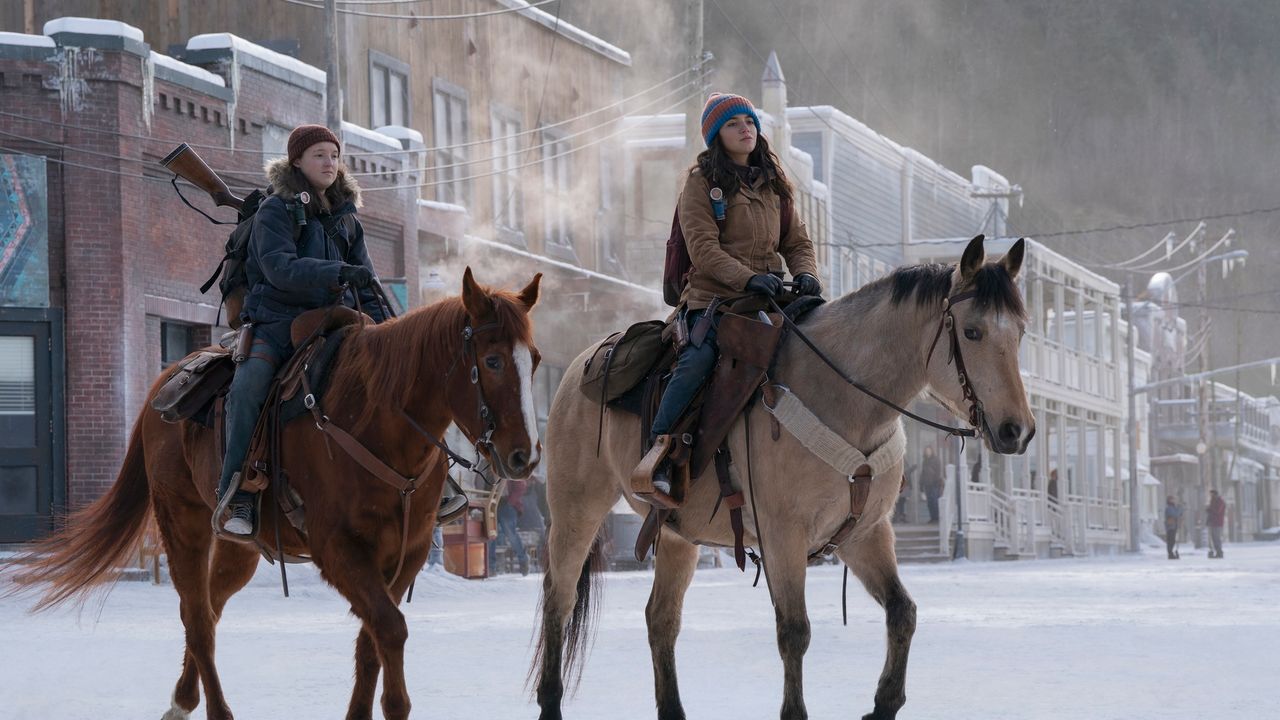"Okay."The second season of The Last of Us begins with the word that last season closed on—a heartbreaking moment of ambiguity between Joel (Pedro Pa
“Okay.”
The second season of The Last of Us begins with the word that last season closed on—a heartbreaking moment of ambiguity between Joel (Pedro Pascal) and Ellie (Bella Ramsey), the girl he now sees as his surrogate daughter. As you may recall Joel lied to Ellie by saying that her immunity to the cordyceps infection that has turned much of humanity into shrieking zombies wasn’t replicable, and that Ellie was now free to carve out whatever post-apocalyptic life she chose. The truth is much grimmer than that: Joel learned that making a potential cure would kill Ellie, and while she was unconscious in the operating room, he murdered the Firefly resistance movement to set Ellie free.
“Future Days,” the show’s season two premiere, sets up that lie as the first tiny domino that will cascade into the central conflict of this season, and beyond. That “okay,” delivered wonderfully by Bella Ramsey in the first season and replayed as the first moment in the premiere, leaves it up to the viewer to decide whether Ellie actually believed Joel. Picking up five years later, The Last of Us doesn’t yet give us a definitive answer.
What is clear is that Ellie is chafing under Joel’s overbearing and protective nature. Now a teenage adult, Ellie is relishing the work of keeping herself and others secure. She loves sparring practice, going on patrol, and her butterfly knife. She hates feeling like anyone is treating her like a kid, and the confusing nature of her friend Dina’s (Isabella Merced) mischievous advances—romance suits Ellie awkwardly, even as she begins to entertain the idea. The two share tremendous chemistry, fighting and flirting together in the show’s most prolonged action sequence as they battle a fresh breed of infected that’s capable of stalking and deceiving them.
Joel, meanwhile, is doing his best to be a pillar of the community. He and Ellie have set up shop in Jackson Hole, Wyoming—a populous community briefly visited last season, now flourishing and approaching pre-zombie apocalypse normalcy. Joel’s past life in construction has provided him with ample work in Jackson, as he works closely with his sister-in-law Maria (Rutina Wesley) and brother Tommy (Gabriel Luna) to meet the rapidly growing community’s needs. Maria and Joel pick up an argument they seem to have had many times already, about needing to balance welcoming refugees while making sure they take care of their own. Joel leans conservative, and Maria leads with compassion.
There’s a nice, lived-in feel to this scene, even though I’m not sure The Last of Us is particularly interested in digging into this particular ideological argument. At the end of the day, the questions Joel asks his nephew—what’s inside Jackson’s borders? (People) What’s outside? (Monsters)—seems to answer it clearly.
Joel has it less basic in therapy—which is a thing he does now, in exchange for ziploc bags of sub-par weed. Gail (Catherine O’Hara, in a wonderful dramatic turn) has been harboring anger towards Joel—we learn he killed her husband Eugene in a moment of desperation. It’s a bit jarring to hear about something so consequential that happened entirely off-screen, but Craig Mazin, who writes and directs this episode, is clearly setting up a thread he intends to revisit. We already know that Eugene will appear in an upcoming episode played by Joe Pantaliano, and that knowledge is electrifying. Like this scene, that one will not have originated in the game. Eugene is just someone mentioned in passing in The Last of Us Part II, while Gail does not exist at all.

COMMENTS